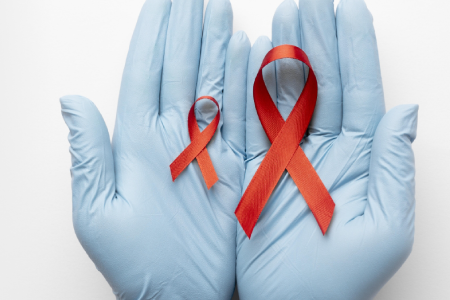Types of Blood Cancer

There are several types of blood cancers
Leukaemia is a type of blood cancer that affects the blood and bone marrow. It is characterized by the rapid production of abnormal white blood cells, which can crowd out healthy blood cells and impair their ability to fight infection. Leukaemia is classified into four main types: acute lymphocytic leukaemia (ALL), acute myeloid leukaemia (AML), chronic lymphocytic leukaemia (CLL), and chronic myeloid leukaemia (CML).
Lymphoma is a type of blood cancer that affects the lymphatic system, which is responsible for fighting infection and disease. It is characterized by the abnormal growth of lymphocytes, a type of white blood cell. Lymphoma is classified into two main types: Hodgkin’s lymphoma and non-Hodgkin’s lymphoma.
Multiple myeloma is a type of blood cancer that affects plasma cells, which are a type of white blood cell that produces antibodies to fight infection. In multiple myeloma, abnormal plasma cells accumulate in the bone marrow and interfere with the production of healthy blood cells.
Causes

Stages of Blood Cancer

Blood cancer is staged based on how far it has spread. The stages range from stage I to stage IV, with higher stages indicating a more advanced cancer.
In leukaemia, the staging system is based on the type of leukaemia and how many abnormal cells are present in the blood and bone marrow. For example, acute leukaemias are typically classified into three stages: the initial stage, in which abnormal cells are present but not causing symptoms; the intermediate stage, in which abnormal cells are causing symptoms; and the advanced stage, in which abnormal cells have spread to other parts of the body.
In lymphoma, the staging system is based on the size and location of the tumour, as well as the extent of the cancer’s spread. Hodgkin’s lymphoma is classified into four stages, while non-Hodgkin’s lymphoma is classified into four or five stages, depending on the subtype.
In multiple myeloma, the staging system is based on the level of abnormal plasma cells in the blood and bone marrow, as well as the presence of certain symptoms, such as bone lesions or kidney damage.
Prevention, Screening & Diagnosis

Treatment Options
The treatment for blood cancer will depend on the type and stage of cancer, as well as your overall health. Treatment options may include chemotherapy, radiation therapy, stem cell transplantation, or a combination of these treatments. Your doctor will work with you to develop a treatment plan that is tailored to your individual needs.
Post-Treatment Follow-Up
After treatment for blood cancer, it’s important to undergo regular follow-up appointments to monitor for any signs of recurrence. Your doctor may recommend regular blood tests, imaging tests, or bone marrow biopsies to ensure that the cancer has not returned.
Empowering Yourself with Knowledge and Finding Hope in Treatment
Receiving a diagnosis of blood cancer can be difficult, but it’s important to remember that you are not alone. There are many resources available to help you understand your diagnosis, cope with treatment, and find support.
It’s important to empower yourself with knowledge about your diagnosis and treatment options. Ask your doctor questions, do research online (from reputable sources), and connect with other patients or support groups. Understanding your diagnosis and treatment options can help you feel more in control of your situation.
In addition, it’s important to find hope in treatment. Blood cancer treatment has come a long way in recent years, and many patients are able to achieve remission and live long, fulfilling lives. It’s important to stay positive and focus on the progress you are making, no matter how small it may seem.
Finally, it’s important to take care of yourself during treatment. This can include eating a healthy diet, getting plenty of rest, and staying active as much as possible. It’s also important to seek emotional support when you need it, whether that’s through therapy, support groups, or talking with friends and family.
Our dedicated team of healthcare professional at MGM Cancer Institute are available to support you every step of the way.











 +91 44 4200 4200
+91 44 4200 4200 
